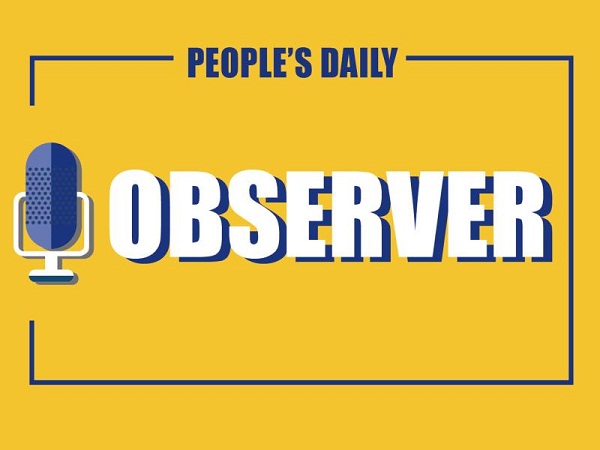
Some China observers got gloomy about China’s future as the world’s second largest economy was rolling out new rules to enhance market supervision. Billionaire investor George Soros is one of the noisiest, though the record shows his doomsday predictions on China turned out to be inaccurate.
Soros on Monday attacked asset management company BlackRock’s China expansion, calling it a “tragic mistake” to pour millions of dollars into China, because the heightened regulations do "not augur well for foreign investors." In an earlier opinion piece published in the Financial Times, he called the regulation changes a “crackdown” on private sector and would become a drag on China’s economy.
Soros’ warning is crying wolf. He misinterpreted the nature of China’s new supervision trend and its economy’s potential, attempting to understand the new normal of running a business in China through the lens of ideological conflicts.
It’s right that calibration of market rules rattled the policy-sensitive investors and perpetrated immediate sell-offs of Chinese assets. These initial reactions were more like a knee jerk reflex, coming from a fallacy that the government was preying on the private sector.
Chinese officials have clarified that the regulatory changes are non-discriminatory and both public and private enterprises are the targets. The new rules, including anti-monopoly measures, are set to prevent the disorderly expansion of capital and monopolistic behavior. In some industries, particularly whose boom is closely connected with technology, innovation and digital economy, the hyper-growth in the last decade left regulators in a catch-up mode and lax supervision brewed risks that may damage market fairness, worker welfare, privacy and data security. The Chinese economy needs technology and capital that would help boost the country’s productivity and market health, rather than exacerbate social income gaps and risks.
It’s also nonsense that the Chinese government loathes the non-public sector. The private sector has been playing an irreplaceable role in sustaining China’s economic success for decades. According to official data, the private economy contributes over 50 percent of tax revenue, over 60 percent of GDP and 80 percent of urban employment in China. Several senior officials reassured the market that the government will continue a policy of unwavering support for both the public and private sectors.
Unlike Soros, the mainstream of Wall Street retains a positive outlook on China, mainly driven by its long-term structural growth and commitment to opening up financial markets to foreign investors.
Based on laws and precedents, Chinese regulators’ efforts are the practice of managing economic activities in many countries. The market sentiment has calmed down and people resumed buying Chinese assets after comprehending the signals carried by the policies: to create a well-regulated market that ensures a level playing field for every entity and advocates long-term goodness. This will fundamentally promote the fair, orderly and sustainable growth and development of the Chinese economy, and will be good for the world economy in the long run.


